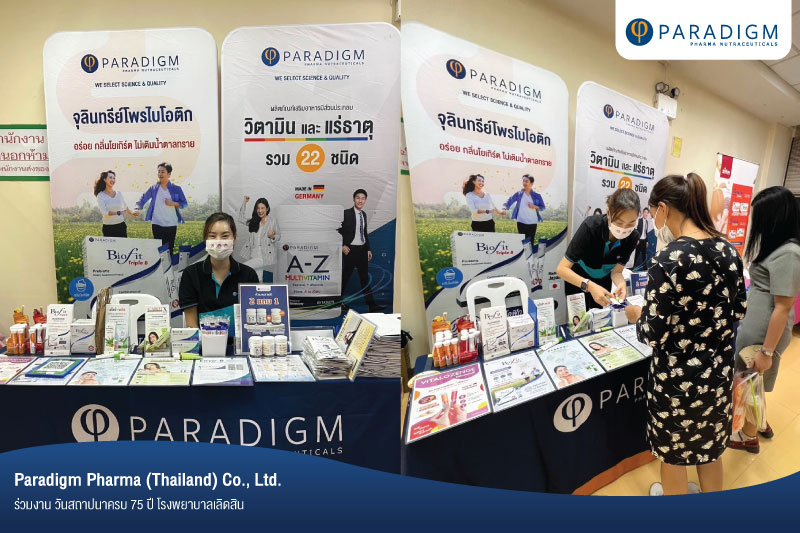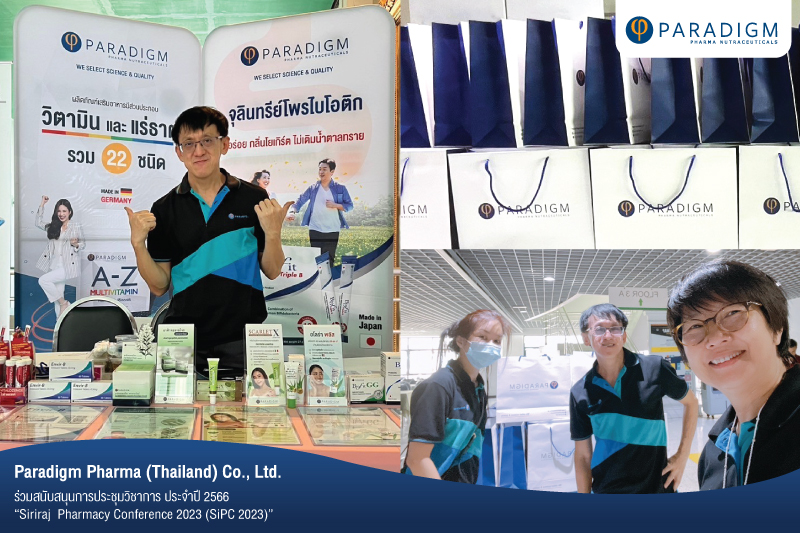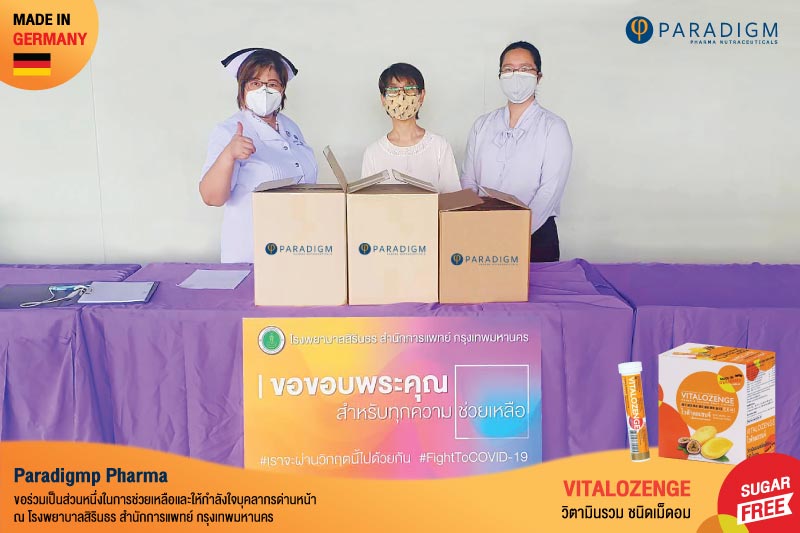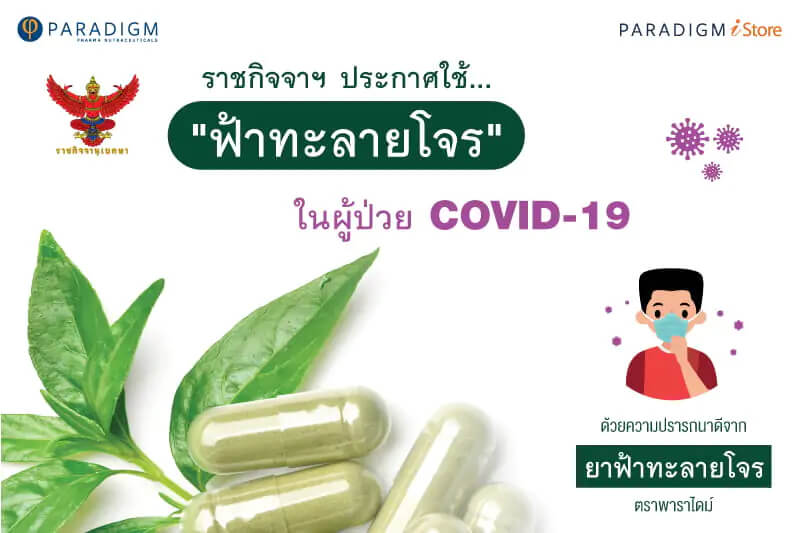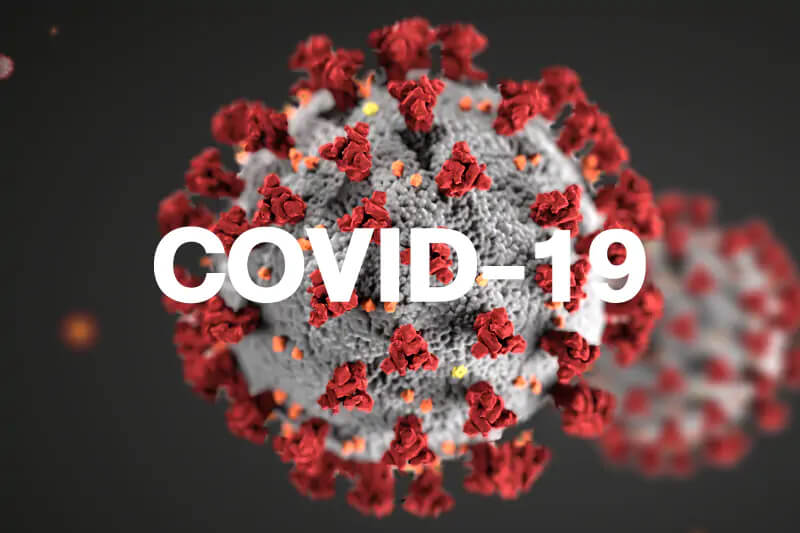Paradigm Pharma (Thailand) Co., Ltd. together with ICBC (Thai), All Seasons Property, Yingke Law Office (Thailand),
Category Archives: News
Paradigm Pharma (Thailand) Co., Ltd. participated in a booth at the event “75th Anniversary of the Founding of Lerdsin Hospital”
Paradigm Pharma (Thailand) Co., Ltd. Join in supporting the 2024 academic conference (20th time) at Taksin Hospital.
Paradigm Pharma (Thailand) Co., Ltd. Join in supporting the 2023 academic conference “Siriraj Pharmacy Conference 2023 (SiPC 2023)”
To be a part of helping and encouraging in this fight against COVID-19, Paradigm Pharma (Thailand) Co., Ltd. has donated VitaLozenge
Due to the epidemic situation of COVID-19, many people have heard a lot of news about the use of “Fa-Thalai-Chon”
The herbal medicine containing extracts of an ancient plant long used in Asia to ward off virus infection by bolstering


